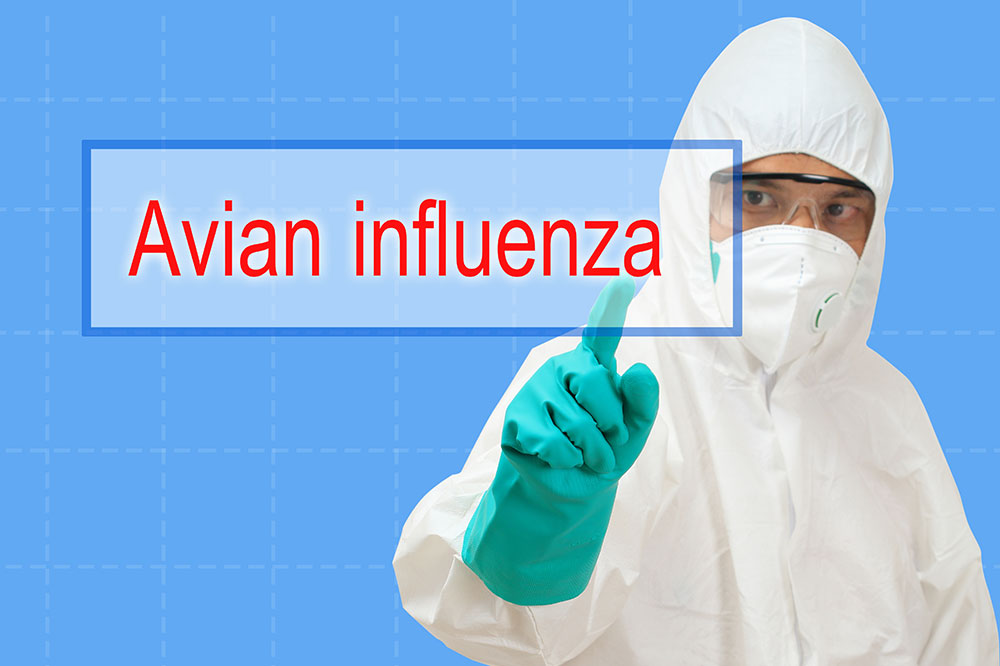
Avian flu – Symptoms, causes, prevention, and more
Avian flu, commonly called bird flu, is a type A viral infection. This contagious disease is widespread among aquatic birds, domestic poultry, and other bird and animal species. Though infection in humans is restricted, it has occurred due to its zoonotic characteristics. Now that we know it can also affect humans, how do we predict the symptoms, treat it and eventually prevent the spread? Read on to get an in-depth analysis.
Understanding avian flu
Avian Flu is harmful to poultry and sometimes fatal in humans. It can spread to a human in close contact with infected poultry and other bird species, but no evidence shows that it can spread from human to human.
According to the World Health Organisation, the most common strain of virus that causes avian flu is H5N1. This is widespread because the virus is easily mutated and spread among humans. It will, in turn, cause an increased mortality rate, emerging as one of the pandemics/public health concerns.
Causes of avian flu
There are various types of flu viruses which are categorized based on the two types of protein:
- Hemagglutinin (HA) contains 16 types of viruses ranging from H1 to H16.
- Neuraminidase (NA) contains nine subtypes of virus ranging from N1 to N9.
The other type is the combination of NA and HA proteins, for instance, HDN1, H7N2, and H7N8 cause bird flu.
Transmission of avian flu
The condition is transmitted in the following ways:
- Contact with the feces, secretions from the nose, eyes, or mouth of infected birds or poultry farms.
- File markets and other places where eggs and birds are sold in unsanitary and crowded circumstances
- Inhaling or breathing the infected bird while cleaning their beddings or dusted area.
- A poultry farmer or those who work in poultry
- A healthcare worker who tends to attend to infected patients
- A traveler who has visited a place with a high rate of avian flu infections
- Not proper cooking meat or eggs produced from the flu-affected birds or poultry.
Symptoms of avian flu
The symptoms of Avian flu vary from person to person, depending on their age and overall health condition. Mostly, it would appear like the regular flu or fever within 2-7 days of infection. But when left unnoticed, it can progress and become life-threatening. Here are some common symptoms:
- Cough
- Fever
- Muscle ache
- Respiratory infection or breathing difficulties
- Headache
- Sore throat
- Runny nose
- Abdominal pain
- Upset stomach due to diarrhea
- Feature
- Malaise
- Seizure
- Chest pain
- An altered mental state like depression, mood swings
Test for Avian flu
Examination of specimens (RT-PCR)
Liquid samples from the throat or nose of the affected person will be collected to detect avian influenza viruses. The sample should be collected within the initial days after symptoms appear. A special test kit approved by the U.S. Centre for disease control and Prevention is used to identify the first with real-time PCR through a polymerase chain reaction. In addition, PCR can detect nucleic acid from the virus within four hours.
Blood tests
Blood tests are also suggested to detect the specific antibodies in the blood after the appearance of the symptoms, but these tests are not practical and take a prolonged time.
Diagnostic imaging test
How can healthcare professionals test the presence of avian flu in humans? Here are some diagnostic imaging tests that are proven to be helpful.
- Chest X-ray
- White blood cell differential test
- Nasopharyngeal culture
- Auscultation (the diagnosis producers used to detect abnormal/ unhealthy breath sounds)
These tests for Avian flu play a vital role in assessing the health of the lungs, which are affected by flu, confirm the presence, and provide appropriate, timely treatment to treat the signs and symptoms.
Treatment methods for Avian flu
When the disease becomes progresses, it will arise severe health complications such as:
- Acute respiratory condition
- Sepsis is an inflammatory condition in response to the infection of germs and bacteria
- Pneumonia
- Organ failure
Here are some effective treatment options for Avian flu:
- Isolation – Upon being diagnosed with avian flu, you will be isolated to avoid its spreading. A family member or co-workers who have been near you will be prescribed antiviral tablets even though they are not infected.
- Prescription plan – The healthcare professional prescribes a specific plan to relieve the symptoms of bird flu and ultimately reduce the severity.
Prevention of Avian flu
- Always cook the poultry-related meat completely with an ideal internal poultry temperature of 74 degree Celsius or more.
- Eggs, where both white and yolk should be thoroughly cooked
- Get the bird’s vaccination to prevent the onset of infection. However, there is no vaccine developed for humans for bird flu.
- Wash your hands frequently using ethanol-based sanitizers if you are traveling in open-air markets.




